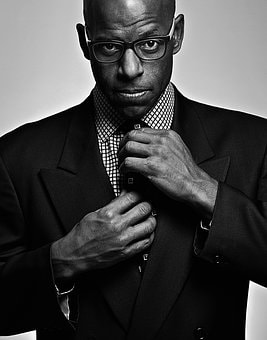You know the Word of God is just bomb! It has something to say on every single subject under the sun. Shout out to my daddy up in heaven, who used to always say, “Read the book of Proverbs. It has so much wisdom on everyday life.” My parents used to read the book of Proverbs to us all the time for the above-mentioned reason, and because of that the below scripture is my center scripture when it comes to borrowing and credit:
The rich rule over the poor and the borrower is a slave to the lender. – Proverbs 22:7
I don’t know about you all, but I don’t like being a slave to nobody! Therefore, this scripture is always in the back of my mind when I consider any type of borrowing. Thus, I only borrow what I need, and I only borrow what I know I can pay back. Why? Because I don’t want to spend the rest of my life working to pay someone else. I want to work and pay myself.
Below are some things that lenders look at when they are considering loaning to a person. They want to assess the risk factor in loaning to an individual. The things they look for have a lot to do with discipline. The above scripture induces discipline in me when I think about money:
How much debt:
A person who doesn’t have too many lines of credit open shows that he may be more responsible in how much debt he is willing to take on. He may not be such a high risk to loan money to in the future. Whereas, a person who is always getting credit cards and opening up new lines of credit has a greater risk of default. This may affect his credit score negatively and cause lenders to think twice about lending to him.
How high the balances are:
This goes to the point of not living above one’s means. If the balances on the credit lines are too high; It may be a red flag that the consumer is not a good manager of credit and thus could pose a risk when considering loaning money to this person. As a rule credit utilization of your lines of credit should always be as low as 30-50% of what has been made available to you. This means if you have a $10,000 credit card, you should spend no more than $3,000-$5,000 of that credit card per month. Never spend over 50% of what you’ve been approved for. That would make you high-risk.
That is a bit of an extreme example because I don’t believe anyone should be putting $3,000-$5,000 on a credit card each month. It’s a good rule of thumb to only spend what you can pay off in full or in a few months of payments. Practicing this consistently will add to a high credit score. Paying it off in full each month or paying it off as agreed will build your credit. Remember, if you pay your credit card off in full each month, you don’t have to pay interest. You only pay interest when you carry a balance.
Length of Debt:
How long have you had the lines of credit open? How long has it been since you opened a new line of credit? If you’ve had an account open for a good length of time that you’ve been paying consistently; It shows that you can make payments on time. It’s not good to open too many lines of credit at one time. For example, if you are shopping for a house, do not shop for additional credit at that time besides mortgage loans. Opening credit while applying for credit such as a housing loan can cause a denial.
How many inquiries are on credit report:
There are soft and hard pulls on your credit. A soft pull comes from a company that views your credit in order to maybe make a contract with you or something, but not to extend credit. Companies that make soft pulls are cable, cell phone, and insurance companies. They pull your credit for informational purposes only.
Hard pulls are when your credit is pulled for the purposes of extending credit such as credit card companies, banks, etc. The hard pulls show up on your credit report, but the soft pulls do not. If a person has too many hard pulls on their credit report; it will lower their credit score.
Your Credit Score:
Your credit score is the overall grade of your credit history. The 600s are average, while the 700 and 800s are very good scores. Anything below the 600s isn’t good. Your credit score is based on the above-mentioned things plus any delinquencies or judgments on your credit history. You can find out more about your credit score by visiting the website: FicoScore Fact Sheet
https://www.fico.com/en/latest-thinking/brochures/fico-score-fact-sheet
Delinquencies:
Delinquencies are when people fall behind on making the agreed upon payment. Those who become delinquent are normally charged late fees, and depending on the type of delinquency may be in danger of losing the asset he/she is delinquent on such as a house or a car. Delinquencies can result in judgments which are certain amounts of money owed to the entity who has sued the individual. Judgments and delinquencies appear on the credit report. They normally remain on the credit report for 7 years. Bankruptcies are also a form of a judgment that will remain on the credit report for 7 years.
Credit reports can be checked once per year for free at annualcreditreport.com. You will not get your score at this website though. You may get a copy of your credit report and score for free if you apply for credit. There is an act that requires the lender to send you a copy of your score and allow you to view your credit report for free. I believe they have 30-60 days to show it to you.
Being aware of your credit/borrowing habits, and making disciplined choices in only borrowing what you need, maintaining low balances, not opening too many lines of credit, and paying off your monthly debt, or at the least paying as agreed makes one a great candidate to borrow when necessary.








